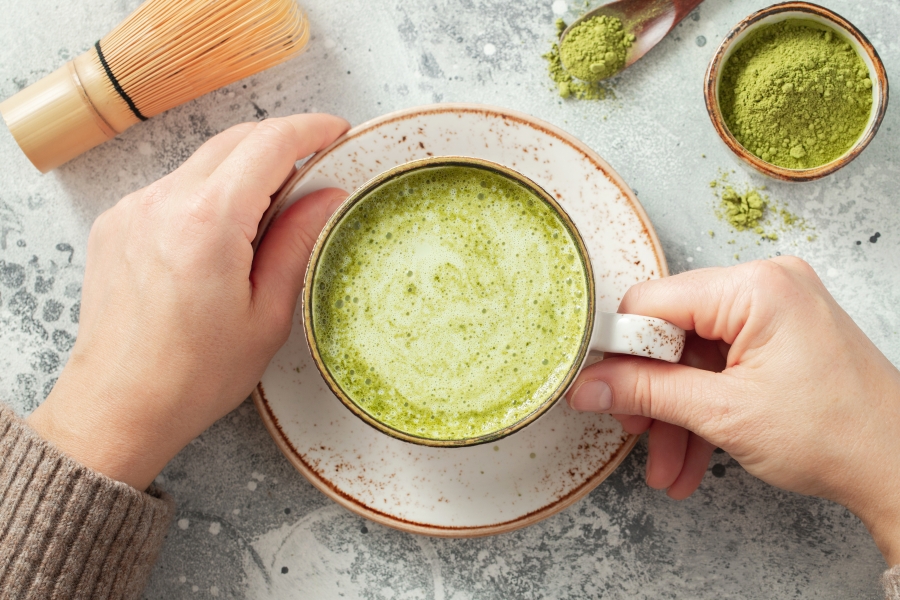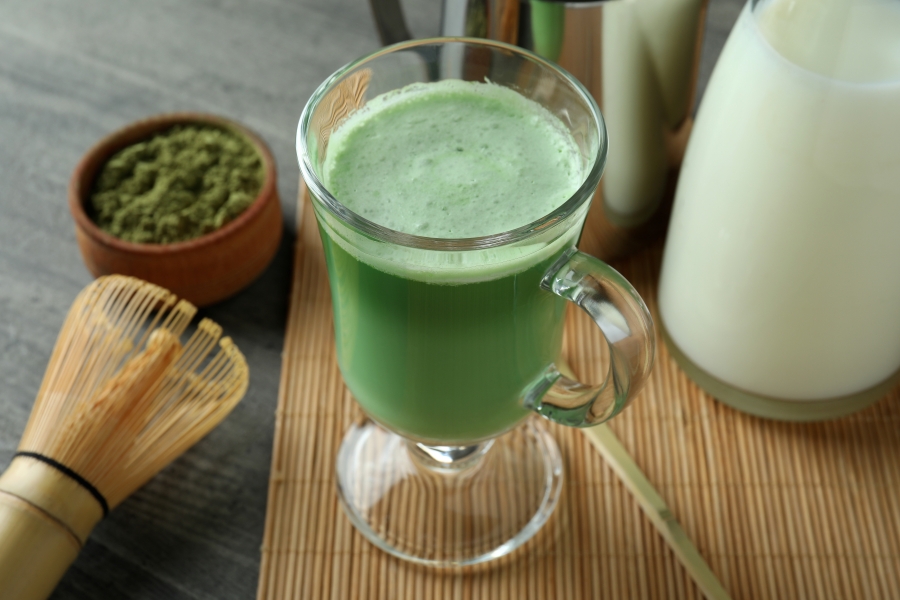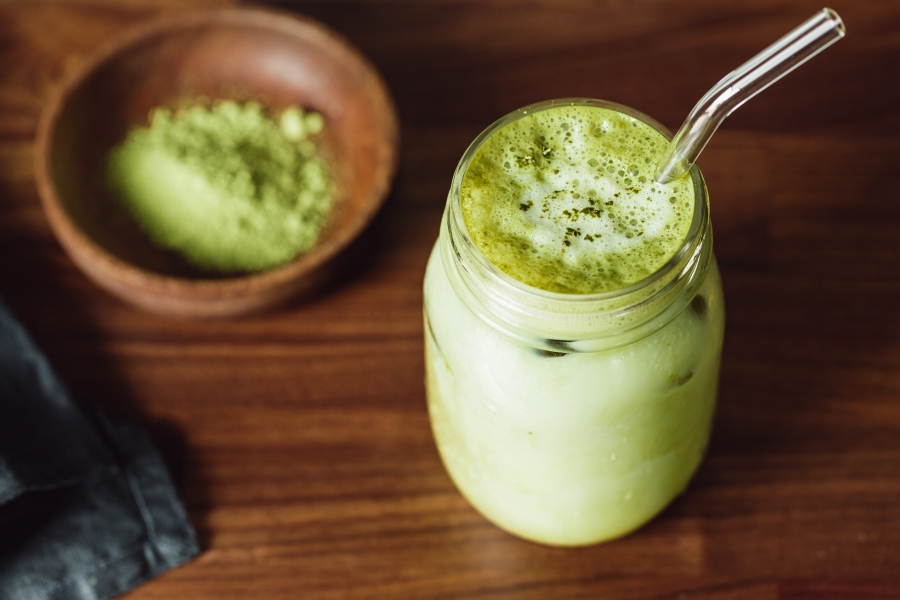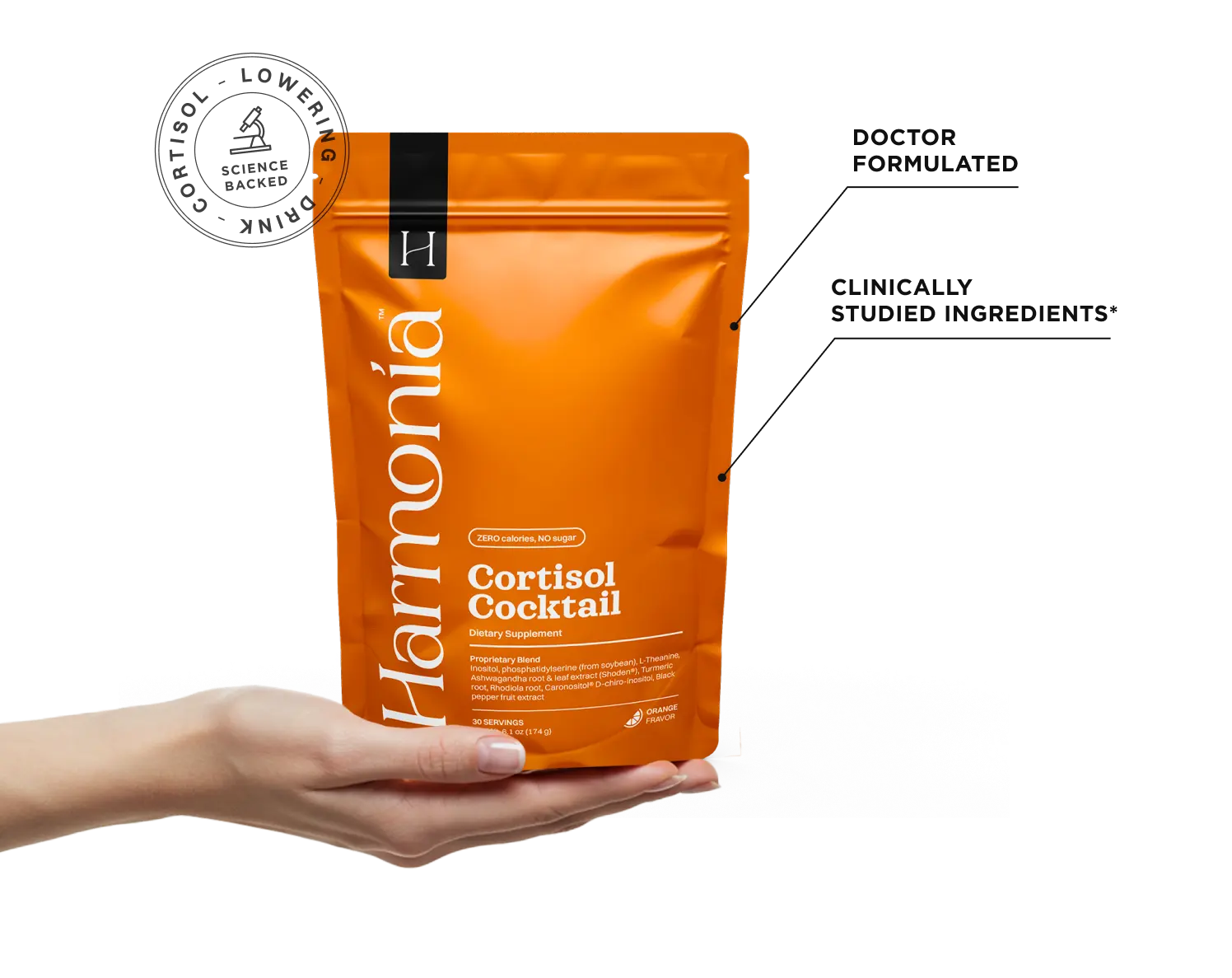Cortisol is often called the “stress hormone,” but it does much more than fuel anxious feelings. It regulates the sleep-wake cycle, metabolism, and energy levels throughout the day. When cortisol stays elevated for too long, it can disrupt sleep, lower resilience to stress, and contribute to fatigue.
Matcha, a finely ground Japanese green tea, has become one of the most popular wellness drinks in recent years. Known for its rich flavor and calming yet energizing properties, it is often compared to coffee. Many people turn to matcha as a gentler alternative, hoping it can help manage stress and support hormonal balance.
This article explores what science says about the relationship between matcha, cortisol, and hormones, while clearing up some common myths.
Understanding Cortisol and Caffeine
Cortisol follows a natural circadian rhythm known as the cortisol awakening response. It peaks in the early morning to help us feel awake, gradually declines throughout the day, and ideally reaches its lowest point late at night. This rhythm is essential for proper rest, stable energy, and balanced metabolism.
Caffeine interacts with this process in a direct way. By stimulating the central nervous system, caffeine increases the release of cortisol and adrenaline. This is one reason coffee feels energizing - it literally signals the body to prepare for heightened alertness.
The issue with excessive caffeine intake is not just the immediate spike in cortisol but the way it can disrupt the natural rhythm. When consumed late in the day, caffeine interferes with the natural evening decline, delaying rest and recovery. This cycle often results in poor sleep, which then raises cortisol again the next day, creating a feedback loop of stress and fatigue.
Matcha, while it also contains caffeine, interacts with cortisol differently because of the unique compounds it provides alongside the stimulant.
Matcha and Cortisol: Gentle Support for Stress Balance

A standard serving of matcha provides around 30-40 mg of caffeine, which is less than half of what you’d find in a typical cup of coffee. While caffeine does stimulate cortisol release, matcha delivers it in a slower, steadier way. This is largely due to its high concentration of L-theanine, an amino acid that profoundly influences how the brain and body respond to stress.
L-theanine increases alpha brain wave activity, which is associated with calm focus rather than high arousal. It also increases levels of calming neurotransmitters like GABA and dopamine, which help counterbalance caffeine’s stimulating effects. The result is a sense of “calm alertness” rather than nervous energy.
Because of this synergy, matcha is less likely to create the sharp cortisol spikes that coffee often causes. Instead, it produces a smoother curve of energy, supporting mental clarity and reducing the likelihood of overstimulation.
For people sensitive to caffeine, this difference can be dramatic. Instead of feeling restless or jittery, they report improved focus and a steady sense of energy that lasts for hours. In this way, matcha indirectly supports more balanced cortisol rhythms and helps protect against the negative effects of stress.
Matcha and Hormones: More Than Cortisol
Cortisol is only one piece of the hormonal puzzle. Hormones like insulin, estrogen, progesterone, and testosterone all play important roles in regulating mood, energy, and metabolism. Matcha’s nutritional profile influences these systems in subtle but meaningful ways.
- Hormonal balance support: Matcha contains polyphenols and catechins, which reduce oxidative stress and inflammation. By lowering oxidative damage, the body can regulate hormones more efficiently.
- Matcha and estrogen: Some green teas contain weak phytoestrogenic compounds. However, the levels in matcha are very low and unlikely to meaningfully increase estrogen.
- Benefits for men: Far from being problematic, matcha supports cardiovascular health, energy production, and mental focus. Its antioxidants also promote testosterone balance by lowering oxidative stress, making it equally beneficial for men.
This makes matcha a versatile beverage for both men and women. Instead of throwing hormones off balance, it seems to support resilience across multiple systems. Regular consumption can be part of a broader strategy to maintain stable energy and reduce the effects of chronic stress on the endocrine system.
Another Option: For those who prefer a caffeine-free alternative, Harmonia Cortisol Cocktail blends adaptogens like Ashwagandha and Rhodiola with nutrients such as magnesium, inositol, and L-theanine. Together, these support cortisol regulation, sleep, and broader hormonal balance—making it a simple daily option for both men and women.
Matcha and Sleep: Timing Matters
Sleep quality is closely tied to cortisol. High evening cortisol levels interfere with the body’s ability to wind down, leading to difficulty falling or staying asleep. Stimulants like caffeine can keep cortisol elevated longer, delaying the natural nighttime drop.
Matcha’s caffeine content makes it unsuitable for late-night consumption, but it is less disruptive than coffee because of its L-theanine content. While caffeine stimulates the nervous system, L-theanine reduces the perception of stress, lowers heart rate, and promotes relaxation.
Those who struggle with sleep should enjoy matcha in the morning or early afternoon. This allows time for the caffeine to metabolize while still experiencing its benefits for focus and stress balance. Unlike coffee, which often leaves people feeling overstimulated well into the evening, matcha supports a smoother transition toward rest.
For shift workers or individuals with disrupted sleep cycles, matcha can be an effective way to gain alertness without worsening cortisol misalignment.
Energy, Focus, and Stress Resilience with Matcha

One of the most celebrated qualities of matcha is the type of energy it provides. Rather than a rapid surge, it creates a steady state of mental alertness that can last four to six hours.
The difference comes down to how the body metabolizes matcha. The presence of catechins and L-theanine slows the absorption of caffeine, preventing sharp rises in heart rate and cortisol. Instead, energy levels increase gradually, remain stable, and then taper off gently.
- Duration of effect: While coffee can feel like a spike followed by a crash, matcha’s energy curve is smoother. The caffeine half-life is around five hours, so its effects remain active for much of the day.
- Support for productivity: This makes matcha a popular choice for work, study, or creative tasks that require sustained focus. Many people find they can concentrate longer and remain calm under pressure.
- Stress resilience: Because it avoids overstimulation, matcha helps the body respond to daily stress with greater stability, reducing the sense of being overwhelmed.
Matcha vs. Coffee: Impact on Cortisol
Coffee and matcha share caffeine as their primary stimulant, but their overall impact on cortisol is very different.
For individuals with high stress loads or those prone to anxiety, matcha provides a gentler and more sustainable choice. Switching from coffee to matcha often reduces jitteriness, lowers the intensity of cortisol spikes, and creates a more balanced daily energy pattern.
This doesn’t mean coffee is harmful. In moderate amounts, coffee can be part of a healthy lifestyle. However, for people concerned with cortisol balance and long-term stress resilience, matcha generally offers more supportive benefits.
Science and Myths
Conclusion

Matcha is more than a wellness trend; it is a science-backed alternative to coffee that supports both energy and stress balance. With its moderate caffeine content and the calming influence of L-theanine, matcha provides mental clarity without the cortisol spikes and crashes often linked to coffee.
For deeper support, especially when chronic stress or hormonal imbalances are present, Harmonia offers a smarter solution. With ingredients like L-theanine, Ashwagandha, and Rhodiola, it helps regulate cortisol, improve sleep, and restore balance beyond what matcha can do alone.
Together, matcha and Harmonia can be part of a daily routine that builds resilience, supports focus, and encourages long-term stress relief.
References
- Sabt, A., Alyafei, F., Alaaraj, N., Hamed, N., Ahmed, S., & Soliman, A. (2025, May). Cortisol response to coffee, tea, and caffeinated drinks: A comparative review of studies. In Endocrine Abstracts (Vol. 110). Bioscientifica. Link.
- Wang, L., Brennan, M., Li, S., Zhao, H., Lange, K. W., & Brennan, C. (2022). How does the tea L-theanine buffer stress and anxiety. Food Science and Human Wellness, 11(3), 467-475. Link.







